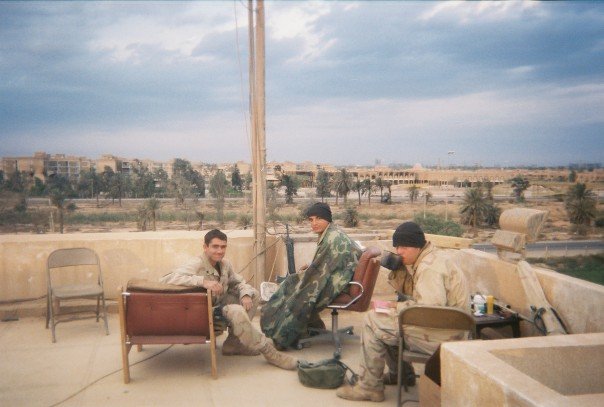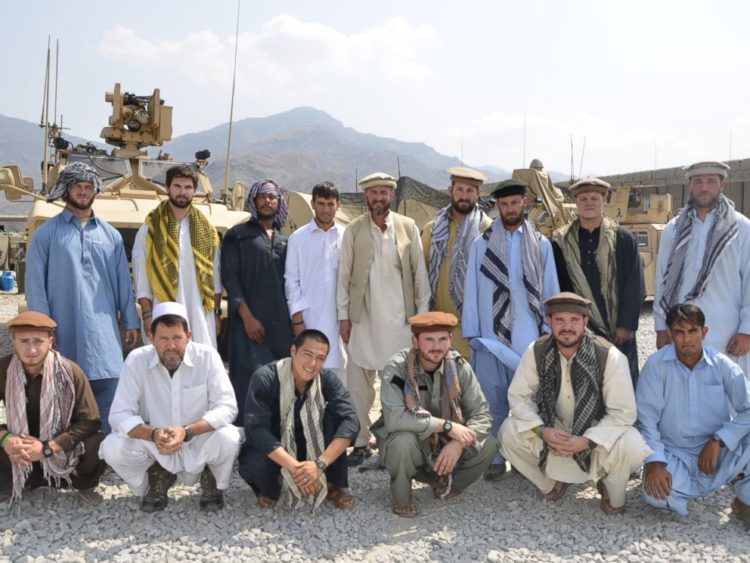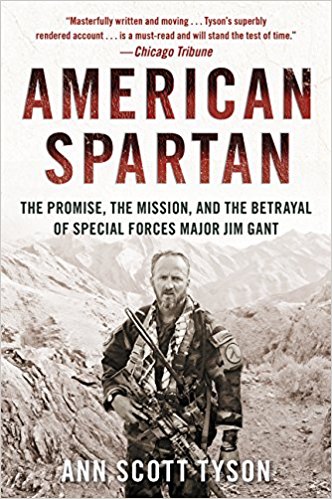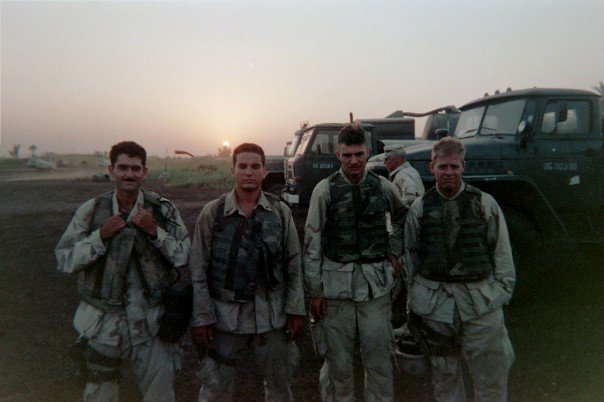How Unconventional Warfare Fails
What we put on paper and present to management, politicians, bureaucrats, or commanders rarely represents reality after they authorize it, give us money, and pat us on the back for how innovative and effective it will be.
Our unconventional and counter-insurgency operations are a blaring example of this. Designed on paper to train our operators in foreign languages and cultures, immerse them in those cultures, and have them inspire indigenous peoples to risk their lives for their own freedom, unconventional warfare and counter-insurgency operations sound great on paper. The reality is sometimes far different.
I’ll interpose some quotes throughout this article from the June 24th, 2014 Washington Post piece “Top Green Beret Officer Forced to Resign Over Affair With WaPo Reporter” on Special Forces Major Jim Gant to provide examples of this.
Jim Gant top center
Gant’s textbook unconventional warfare and counter-insurgency tactics and strategy in Afghanistan were lauded by top level commanders and politicians for their success. But because they were textbook and not what was practiced throughout the community and the military as a whole, he was also hated by many. “As good as he was at juggling tribal politics, Gant wasn’t as talented with his ‘SF’ brethren, who had become increasingly cautious and risk-averse over the course of the long war.”- WP
I joined the military with a black and white view of the world and then experienced the bureaucratic group think and career prioritization that changed my perception.
This group think and emphasis on career and promotion existed (and still exists) from the infantry level all the way up to special operations and black ops.
This mentality led to military forces believing that killing or capturing individuals who posed a threat, based only on information from local sources, with drones or overwhelming ground troops was the safest method that would bring them recognition and honors from higher-ups.
The reality was that many times this information was given only because the source felt threatened by U.S. forces or wanted his rival taken out.
By taking these “threats” out with missiles or overwhelming ground troops, the U.S. often times killed allied tribe members or alienated tribes who otherwise would have helped them.
“Olson considered Gant one of the few in special operations who understood that progress required more than just kill/capture missions and viewed him as an antidote to an unconventional war that had taken the wrong direction with a surge of conventional troops.”-WP
Another outcome of this cautious, risk-averse mentality was the belief that technologically superior weapons and equipment would achieve success instead of “going native.”
The idea of sending a 2 or 4-man Marine Scout/Sniper Team into the open fields or villages of Iraq and Afghanistan in body armor, helmets, uniforms with rank, and high and tight haircuts instead of letting them blend in with the population is one example.
Author Matt Victoriano on the left
The idea of driving through Iraq I.E.D. lanes in black Chevy Suburbans in order to protect a V.I.P. is another example- instead of blending in, not being noticed and respecting the environment, the idea was that modern and advanced equipment would get the job.
Unfortunately, this simply presented convoys as a targets of opportunity, which resulted in many convoys being attacked and the deaths and injuries of many Americans.
“It wasn’t about our weapons or our body armor… it was gonna be about how we treated them. And it worked. It worked in a big way,” Gant said.’- WP
‘”[Gant] did go native. You go native so that the natives feel that you respect them and are comfortable with them and trust them, above all. And he really was adopted as a son by Sitting Bull… there was no question about the relationship between these two individuals. And that’s what you want,” Petraeus said.’-WP
I learned through experience the effect of going native. Instead of wearing all the cool guy gear with weapons bristling, my partner and I squatted walked into a compound without gear or weapons (that they could see), squatted in the dirt, helped pick sunflower seeds for the market, and spoke Arabic to the Sunnis who had been mutilated by American forces.

We were in the heart of the Sunni Triangle of Death, immersed in insurgent territory rocked by IED’s and rockets. But the family elder accepted us and spent hours talking and listening and feeding us. In the end, no one died and the tribal elder was left with a sense of understanding and respect for American forces that he had not seen before.
Iraq is now in chaos. In fact, it always has been since we invaded. Afghanistan has lost ground to the Taliban since their initial route in 2001. Our unconventional warfare and counter-insurgency operations have failed.
Small victories have meaning to those who earn them, but we still have to live with the larger and lasting reality. The families, clans, tribes, and religious sects we fought hard to empower through our unconventional and counter-insurgency operations are now fighting alongside ISIS and the Taliban.
Or, at the least they are dropping their arms and surrendering to them. And yet, we continue with the same policies, the same strategies, the same tactics, and the same mentality that shuns the true application of unconventional warfare.




Matt,
Strength and Honor, my friend.
We did the very best we could.
Thank YOU for YOUR service and thank all the warriors you served with as well.
ONWARD.
Jim Gant
1COR13:13
Matt,
Strength and Honor, my friend.
We did the best we could.
Thank YOU for YOUR service…and thank all the warriors you fought alongside as well.
ONWARD.
Jim Gant
1COR13:13